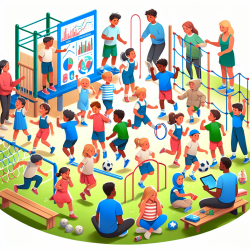As professionals dedicated to supporting individuals across the lifespan, speech-language pathologists (SLPs) face unique challenges when working with the aging population. Hearing loss, a prevalent issue among older adults, significantly impacts communication, necessitating specialized strategies to facilitate effective therapy. The research article "Hearing In Aging (1996)" provides valuable insights into this aspect of speech-language pathology, offering a foundation for practitioners to refine their skills and approaches.
Understanding the Impact of Hearing Loss in Aging
Hearing loss in older adults is not merely a reduction in the ability to perceive sound; it fundamentally alters how individuals process auditory information, affecting speech comprehension and production. This shift necessitates a nuanced understanding from SLPs, who must adapt their therapeutic strategies to address these changes effectively.
The Role of Auditory Processing
A critical takeaway from "Hearing In Aging (1996)" is the importance of auditory processing. As hearing loss progresses, the clarity of auditory signals diminishes, challenging the brain's ability to interpret these signals. SLPs must incorporate techniques that enhance auditory processing skills, such as auditory training exercises and the use of assistive listening devices.
Communication Strategies for Older Adults
Effective communication strategies are essential for older adults experiencing hearing loss. The research highlights the need for SLPs to teach clients adaptive communication techniques, such as facing the speaker, minimizing background noise, and using visual cues to aid understanding. These strategies empower clients to actively participate in conversations, improving their quality of life.
Advancing Therapeutic Techniques
"Hearing In Aging (1996)" also emphasizes the evolution of therapeutic techniques tailored to the aging population. By integrating the latest research findings into practice, SLPs can enhance their therapeutic approaches, ensuring they are both effective and evidence-based.
Customizing Therapy Plans
Each older adult presents a unique profile of hearing loss and communication needs. Customizing therapy plans to address these individual differences is crucial. This may involve a combination of speechreading training, auditory rehabilitation, and counseling to address the psychosocial impacts of hearing loss.
Interdisciplinary Collaboration
The complexity of hearing loss in aging underscores the importance of interdisciplinary collaboration. SLPs should work closely with audiologists, gerontologists, and other healthcare professionals to provide comprehensive care that addresses all aspects of an older adult's health and well-being.
Encouraging Continued Research and Education
Continued research and education are paramount for SLPs working with the aging population. "Hearing In Aging (1996)" serves as a reminder of the dynamic nature of the field and the ongoing need for practitioners to stay informed about the latest developments in hearing science and speech-language pathology.
Professional Development Opportunities
SLPs should seek out professional development opportunities that focus on aging and hearing loss. Workshops, webinars, and conferences offer platforms for learning new techniques and sharing best practices. Additionally, engaging with the latest research through academic journals and publications keeps practitioners at the forefront of the field.
Advocating for Resources and Support
Finally, SLPs play a critical role in advocating for resources and support for older adults with hearing loss. This includes pushing for better access to hearing healthcare, advocating for the inclusion of auditory rehabilitation in insurance coverage, and raising awareness about the challenges faced by this population.
In conclusion, "Hearing In Aging (1996)" offers valuable insights for speech-language pathologists seeking to improve their practice with older adults experiencing hearing loss. By understanding the unique challenges of this population, customizing therapeutic approaches, and committing to ongoing education and advocacy, SLPs can make a significant impact on the lives of their clients. To explore the original research and further enrich your practice, please follow this link: Hearing In Aging (1996).










